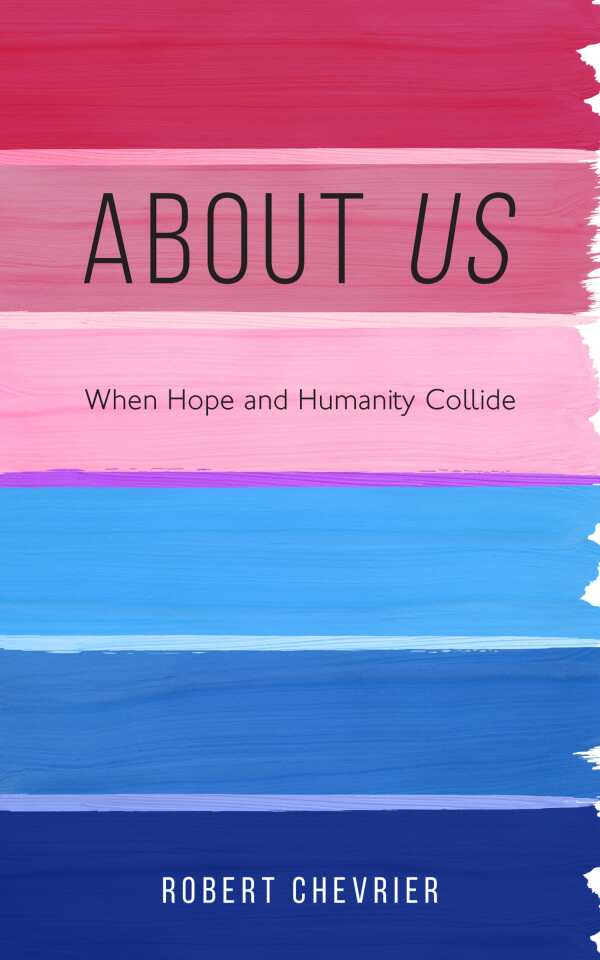About Us
When Hope and Humanity Collide
The bittersweet and reflective novel About Us finds a young boy considering intriguing ideas in the late 1960s.
Robert Chevrier’s novel About Us is cheeky, flamboyant, and stuffed with musings on the nature of art and the universe.
The book is set in 1969, among hippies and counterrevolutionary times. Across nine chapters that cover both grounded and fanciful incidents, this philosophical treatise masquerading as a coming-of-age tale focuses on grade school boy who has grand ambitions of becoming a newscaster. When he isn’t holding bull sessions at his neighborhood beverage and brownie stand, he’s interacting with three people who shift his worldview: Fusilli, a precocious Black classmate who opens his eyes to artistic potential and love; Fusilli’s grandfather, Mr. Anderson, a World War II veteran who’s haunted by memories of war and racism; and kindly Father Donovan, a local priest experiencing a crisis of faith.
Meanwhile, the boy’s art class becomes a locus for metaphysical inquiry where other nine-year-olds share their existential musings and put on avant-garde exhibitions. Elsewhere, a fishing expedition with Mr. Anderson becomes a tribute to simple ways of living. The characters’ theatrical and oratorical exchanges become a manifesto, declaring that people have been abandoned by the essence that created the world, in whose absence they surrendered to capitalistic greed, strife, and climate-wrecking behavior. Politics are compared to a talent show; humanity is said to be ruled by an etiquette of destruction. All these points are driven home in the book’s most far-out passage, in which the students gain a magical glimpse of our world in 2020, witnessing a pandemic-stricken society that hastens toward doom.
In the end, the book is as much a polemic as it is a story. While the boy experiences growing enlightenment about the world and his place in it, the book is at its most convincing when it centers its free-flowing ruminations in tangible situations, whether they be the pleasures of hugging a favorite teacher, the affectionate memories of organ music blasting from an eight-track player, or the touching anecdote about Fusilli winning a spelling bee by spelling “racism” R-I-T-U-A-L, forcing parents and children alike to consider the import of the words.
Swept up in its high-minded rhetoric and in the liquidity of its language, the novel doesn’t try to be an accurate portrayal of its times. Its characters’ views on LGBTQ+ equality and climate conservation are more representative of the present than they are of 1969; its nine-year-olds’ trenchant philosophies and cultural commentaries strain credulity. Further, the book’s messages of goodwill and respect for nature are hammered at in an overly relentless manner.
The bittersweet and reflective novel About Us finds a young boy considering intriguing ideas in the late 1960s.
Reviewed by
Ho Lin
Disclosure: This article is not an endorsement, but a review. The publisher of this book provided free copies of the book and paid a small fee to have their book reviewed by a professional reviewer. Foreword Reviews and Clarion Reviews make no guarantee that the publisher will receive a positive review. Foreword Magazine, Inc. is disclosing this in accordance with the Federal Trade Commission’s 16 CFR, Part 255.

